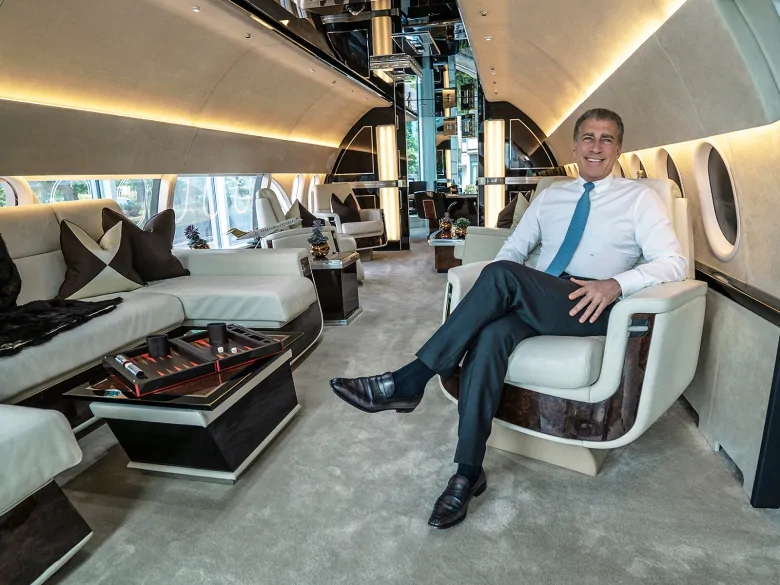What impact do private jets and celebrity lifestyles have on the fight against climate change?

The CEO of a company that sells private jets to corporations says his clients are concerned about climate change, but ultimately they “still have to conduct their business.”
“We are still living in the 21st century and people do have to understand that,” said Steve Varsano, founder of The Jet Business.
“We’re not in the Stone Age, and as much as people want to be able to save the earth, you still have to survive, you have to live, and you have to produce revenue for your shareholders.”
Despite that, Varsano told The Current’s Matt Galloway that the topic of climate change is coming up “more and more” in his luxurious showroom in London, U.K.
“People are becoming more conscious of it and they do want to do something about it,” he said.
“There are some companies and programs that you can easily buy carbon footprint offsets, and it’s not that expensive, believe it or not.”
Carbon offsetting works by calculating the emissions generated by a flight you take, for example, then paying someone to plant enough trees to remove that carbon from the atmosphere.
Every flight’s emissions add up: prof
The Intergovernmental Panel on Climate Change estimates that domestic and international aviation accounts for approximately two per cent of global CO2 emissions produced by people.
Varsano argued that due to the relatively small number of private jets in the world, the carbon emissions involved are quite small.
But Stefan Gössling, a professor of tourism, said it could be argued that every individual emission is irrelevant, until they start to add up.
“The question is how does each and every individual in the world contribute to climate change? And that should be the point of measurement,” said Gössling, who works at Linnaeus University in Sweden.
Gössling also questioned the wisdom of carbon offsetting by planting trees, due to widescale wildfires in recent years.
“Look at Australia, look at California. I think everybody would realize that is not a really safe way of storing carbon,” he said.
Gössling has published research exploring how the lifestyles of the rich and famous affect social attitudes to flight and travel.
He tracked the movements of 10 celebrities in 2017, including Bill Gates and Paris Hilton, mining their social media to estimate their travel itineraries and associated carbon emissions.

He found their flight-related emissions could be 10,000 greater than the average person — but he thinks the problem goes further.
“The issue with the celebrities we studied in our paper is that they are obviously famous people who live specific lifestyles that they are admired for,” he said.
Fans and followers may then aspire to, or imitate, their jet-setting lifestyles, he explained.
“That becomes something that is problematic because we need the opposite. … We need a social norm change towards people being more critical about flying and travel.”
A private jet is ‘a time machine’: Varsano
Varsano said a pre-owned jet will sell for between $10-$30 million US — depending on size — and is equipped to fly 14 passengers up to 14 hours. A new jet can sell for $100 million US.
One of his famous clients includes motivational speaker Tony Robbins, but he said the worldwide ownership of private jets is split between state-owned planes, and business jets owned by big corporations.
While he understands people see private jets as luxury items, Varsano said they’re also business tools, describing his product as “a time machine.”
“You have flexibility in your schedule, you have security, you have confidentiality. So there’s a lot of things that you benefit from from being in a corporate jet besides just the pure fact of being in a luxurious atmosphere,” he said.
The time that a frequent-flier executive saves — not lining up at airport security, for example — can be used to grow their business, he said.
“There’s no value you can put that, you know, in a dollar term.”
Written by Padraig Moran. Produced by Alison Masemann.





